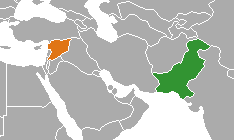25-11-2024
Valentina Stivanello-Gussoni
Southeast Asia & Pacific Researcher,
Global Human Rights Defence.
The devastating impact of domestic violence stretches beyond the boundaries of private life, infiltrating workplaces and undermining the productivity, safety, and overall well-being of employees across industries worldwide. Despite its severe consequences, domestic violence remains a largely unaddressed crisis within the global workforce. Survivors, especially women, often face unique challenges when abuse seeps into their professional lives, leading to compromised health and long-term career setbacks [1].
As revealed by a Human Rights Watch report, the problem is particularly acute in industries such as the garment sector in Southeast Asia. Women workers – who form the backbone of the workforce – often endure discriminatory and exploitative labour conditions with minimal safeguards, only to suffer further abuse and violence in their homes [1] [2].
Employers are urged to take concrete steps to combat this silent crisis by recognising domestic violence as not only a social and health concern but also a critical labour rights issue. This involves integrating domestic violence protections into workplace policies, fostering workplace cultures of safety and empathy, and equipping employers to provide meaningful support mechanisms such as flexible work arrangements and paid leave [1] [2]. Additional measures to combat workplace abuses include providing training programmes for workers, establishing confidential reporting systems, and ensuring transparency in supply chains [2].
Addressing domestic violence in the workforce demands a multidimensional approach that prioritises labour rights and economic security for women. By aligning policies with international labour standards – namely, the International Labour Organisation’s Violence and Harassment Convention, 2019 (No. 190) – and embedding robust safeguards within workplace structures, employers can reinforce the broader societal imperative to eliminate domestic violence [1] [2]. Supporting survivors is not just a moral responsibility – it is a crucial step toward equality, economic empowerment, and the realisation of women’s rights.
Sources and Further Readings:
[1] Human Rights Watch (November 19th, 2024), The Overlooked Crisis of Domestic Violence in the Workforce. Retrieved November 25, 2024, from https://www.hrw.org/news/2024/11/19/overlooked-crisis-domestic-violence-workforce.
[2] Human Rights Watch (March 11th, 2015), “Work Faster or Get Out”. Labor Rights Abuses in Cambodia’s Garment Industry. Retrieved November 25, 2024, from https://www.hrw.org/report/2015/03/12/work-faster-or-get-out/labor-rights-abuses-cambodias-garment-industry.








Comments